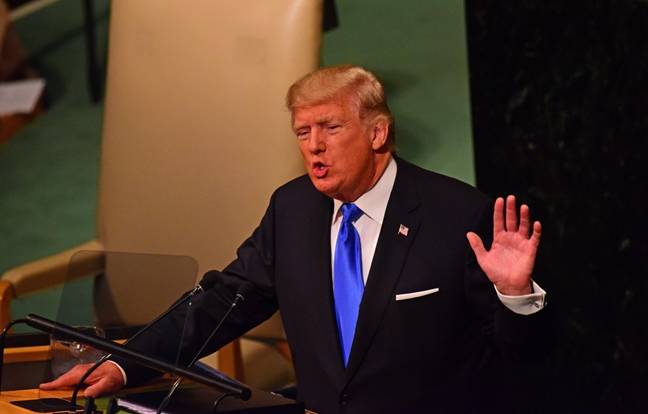US Prez Trump's Administration Reportedly Nears New Rules Banning 'dual-use' Tech Sales To China

The US government is reportedly close to introducing stringent new rules that would stop Chinese companies from buying certain high-technology components, including semiconductors and optical materials.
As reported by Reuters, these new rules, which have been in development for over a year, would have drastic implications on Sino-American trade. One measure would prohibit US firms from licensing or exporting so called "dual-use" technology to Chinese firms or nationals.
Items which are "dual-use" have both civilian and military applications. One example is FPGA circuits, which are integrated circuits designed to be configured after manufacture in order to perform a specific task. FPGAs are ideal for applications where latency is critical, or where electrical energy is in short-supply. It's primarily for these reasons why they're so prolifically used within both civilian industry and defence.
The biggest loser in this specific scenario would be Intel, which runs a brisk trade in FPGAs since its $16.7bn acquisition of Altera in 2015, and also bought UK chip slinger Omnitek in 2019. Another firm that could come up short is Xilinx, which is valued at $19.2bn at the time of writing.
The US has prohibited dealings with China's military since 1989, following the Tiananmen Square massacre. However, in recent years, the US has expressed concerns about the perceived closeness between the Chinese state and industry.
Tim Morrison, a former White House official involved in drawing up these rules, was quoted as saying: "[since] the Chinese have said to us, 'anything you give to us for a commercial purpose is going to be given to the military,' what point is there in maintaining a distinction in our export control regulations?"
Relations between the US and China are fraught, following the tit-for-tat expulsion of 13 American journalists from the Washington Post, New York Times, and Wall Street Journal.
Another thorn in the side of transpacific collegiality is China's handling of the COVID-19 outbreak, prompting Trump to repeatedly call the pathogen a "Chinese virus" in briefings and social media. And that's with mentioning the wider backdrop of an ongoing trade war, and the punitive embargo placed on Huawei.
If these rules are introduced, it'll likely complicate matters further. And, on a practical level, it'll push Chinese firms towards other non-US suppliers. You can also expect the Chinese government to invest heavily in domestic production. A current domestic priority is the Made in China 2025 initiative, which is expected to see it become self-sufficient in high-tech products by the decade's halfway point. ®
From Chip War To Cloud War: The Next Frontier In Global Tech Competition
The global chip war, characterized by intense competition among nations and corporations for supremacy in semiconductor ... Read more
The High Stakes Of Tech Regulation: Security Risks And Market Dynamics
The influence of tech giants in the global economy continues to grow, raising crucial questions about how to balance sec... Read more
The Tyranny Of Instagram Interiors: Why It's Time To Break Free From Algorithm-Driven Aesthetics
Instagram has become a dominant force in shaping interior design trends, offering a seemingly endless stream of inspirat... Read more
The Data Crunch In AI: Strategies For Sustainability
Exploring solutions to the imminent exhaustion of internet data for AI training.As the artificial intelligence (AI) indu... Read more
Google Abandons Four-Year Effort To Remove Cookies From Chrome Browser
After four years of dedicated effort, Google has decided to abandon its plan to remove third-party cookies from its Chro... Read more
LinkedIn Embraces AI And Gamification To Drive User Engagement And Revenue
In an effort to tackle slowing revenue growth and enhance user engagement, LinkedIn is turning to artificial intelligenc... Read more

